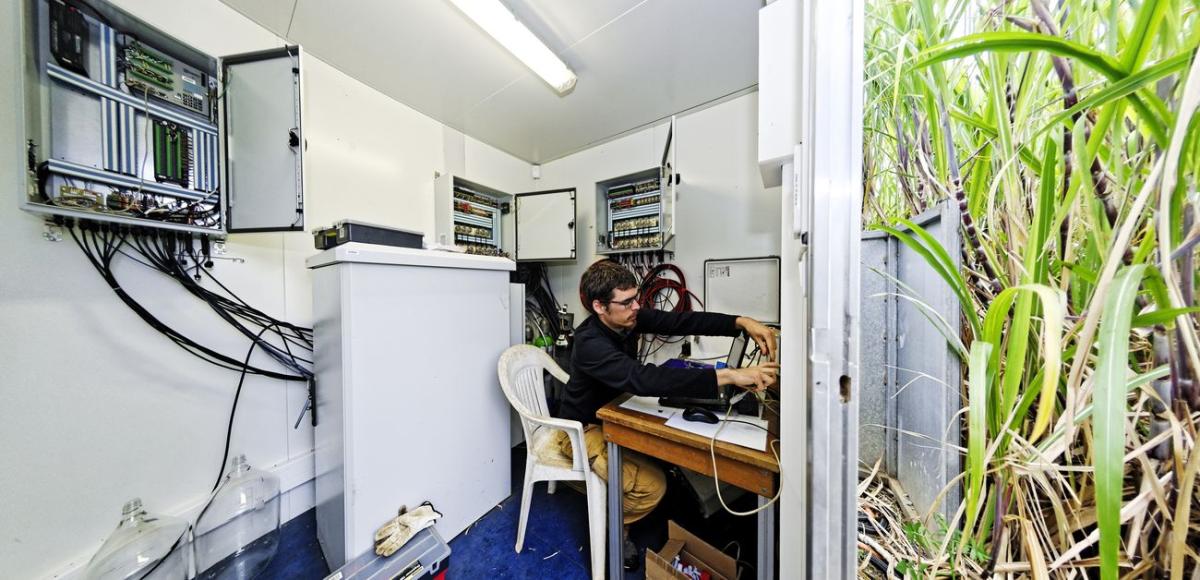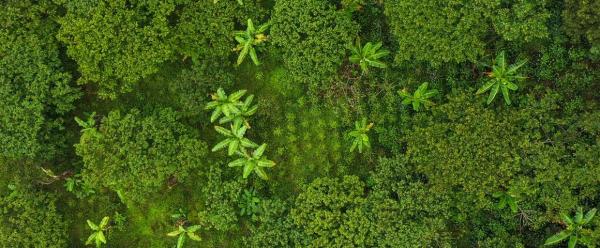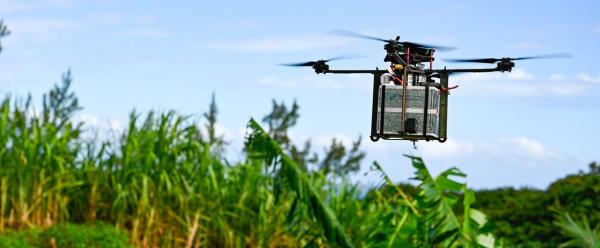Results & impact 10 October 2025
- Home
- Press area
- Press releases
- Assessment of soil carbon stocks in overseas regions
"4 per 1000": new recommendations to preserve soil carbon in the French overseas regions and mitigate climate change

The SOERE PRO facility in Réunion was involved in work on the transposability of the "bas carbone" label to the French overseas regions © R. Carayol
The "4 per 1000" international initiative aims to implement concrete actions to boost the amounts of carbon stored in the soil, notably by means of appropriate agricultural and forestry practices.
While the potential of soils in mainland France was assessed in 2019, that in the French overseas regions was hitherto unknown. Within the framework of the "Overseas 4 per 1000" study, a consortium coordinated by CIRAD in partnership with INRAE and IRD, with financial backing from ADEME and support from the French Ministry of the Overseas has for the first time inventoried the knowledge available for Guadeloupe, Martinique, French Guiana, Réunion, Mayotte, Saint-Martin and Saint-Barthélemy.
The summary produced for policymakers stresses two points. In terms of carbon stocks in the soil, the overseas regions play a major role despite their small area (15% of that of mainland France): they are equivalent to around 20% of the carbon stocks in the soils of mainland France. This is primarily due to the novel mineralogy of these soils, which are built on volcanic rock, but also demonstrates the impact of how they are used (forests, grassland, sugarcane, etc). The second finding was that the data on soil carbon stocks in these regions are still sketchy. There are large amounts of data on the soils of Guadeloupe, Martinique, French Guiana and Réunion, albeit fragmented. However, there is no information at all for Mayotte, Saint-Barthélemy or Saint-Martin.
In addition, given the extent of the forests of French Guiana - equivalent to 46% of the forest area in mainland France - the carbon stored in the territory's aerial biomass was covered specifically in the study. This revealed that it was equivalent to 120% of the aerial carbon in the forests of mainland France.
In line with the objectives of the "4 per 1000" initiative and the "Trajectoire 5.0" launched in 2019 by the Ministry of the Overseas, the "Overseas 4 per 1000" study made a series of recommendations.
Firstly, it is important to preserve the high soil carbon stocks and aerial biomass that exist in the French overseas regions and to minimize their decline.
- Recommendation 1: ensure that tools for planning and implementation of the Common Agricultural Policy (CAP) incorporate payments for ecosystem services associated with agricultural and forestry practices.
- Recommendation 2: combat farmland speculation and retention.
- Recommendation 3: promote agroecological practices by means of incentives measures and communication.
- Recommendation 4: facilitate access to investment, to farm machinery cooperatives (CUMA) for equipment and to training.
- Recommendation 5: transpose the French low carbon standard (Label bas carbone) to contribute to the adoption of stocking
practices through economic incentives.
Secondly, five research actions are recommended to contribute to the above recommendations:
- Increasing knowledge of soil carbon stocks and greenhouse gas balances in the French overseas territories in order to measure the impact of public policies intended to contribute to climate change mitigation.
- Adapting methods to quantify soil storage capacities in order to transpose the French low carbon standard to tropical conditions and crops.
- Stepping up research on the social dimensions - which have been explored very little so far - to foster innovation and the adoption of good practice.
- Developing systemic approaches for the evaluation of agroecological scenarios that are co-developed on the scale of each overseas territory.
- Creating interfaces for territorial and inter-territorial dialogue between science, policy and agricultural and forestry stakeholders, to integrate the French overseas regions more effectively into French and European commitments in terms of climate change mitigation.
The results of the study were presented at the Paris International Agricultural Show, on 1 March 2023.
Download the Overseas 4per1000 study
The "4 per 1000" international initiative is working to encourage players to commit to a transition to regenerative, productive, highly resilient agriculture, based on appropriate land and soil management methods, that creates both jobs and income, and thus supports sustainable development.
It hopes to show that agriculture can provide concrete solutions to the challenge posed by climate disruption, while also addressing that of food security, by implementing farming practices tailored to local conditions: agroecology, agroforestry, conservation agriculture, landscape management, etc.
The initiative facilitates the development of concrete operations in the field, benefiting both crop and livestock farmers, who are the first people to be affected by land degradation, as well as the global population as a whole.
Overseas 4 per 1000 website



























